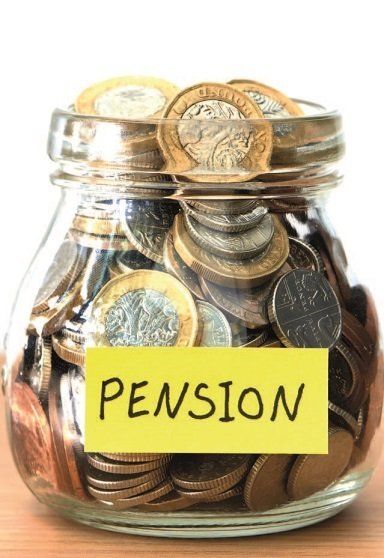Spring Newsletter 2022
Leading Article
Uncertainty now and tax changes to come
We live in times of great upheaval. Stock markets are very volatile, inflation is high (and may get higher) and there is a risk of major war in Ukraine. Of course, the pandemic is still with us, although we all hope the worst is over. At the time of writing, the Prime Minister’s future is in doubt, as are the previously announced increases to National Insurance Contributions that are due in April
One of the few things that is certain is that tax still needs to be paid. However, HMRC has recognised the problems that the Omicrom wave has caused and has extended the deadline for filing self-assessment tax returns until 28 February. If yours has not yet been filed, this has given you four extra weeks to avoid penalties. For those who did not settle their self-assessment tax by 31 January, there is this year a window that extends to 1 April, before any late payment penalty will kick in. However, interest will still be payable from 1 February, as usual, so you should pay as soon as you are able.
Before Christmas, the government re-introduced the scheme that allows small employers to recover statutory sick pay (SSP) where it is paid due to a covid-related absence. This is covered in a separate article below. Now that the other coronavirus schemes have been largely wound down, HMRC will be continuing to check potentially incorrect claims and to investigate potential fraud, the latter having been highlighted recently by a government minister resigning over billions of pounds that is likely to be irrecoverable from the Bounce Back Loan Scheme.
We also know that more change is coming for businesses, with a new VAT penalty regime having been deferred until January 2023 and changes to when the profits of unincorporated businesses and limited liability partnerships (LLPs) are taxed in the pipeline too. The latter is covered in a separate article below.
Clearly, for those running businesses, there is lots to think about at the moment. In this newsletter we highlight many current issues, some of which may affect you. Please contact us to discuss any of them further.
As we approach the end of the tax year, there are other matters that you should always consider, including whether you can
- top up your pension in a tax-efficient way;
- make use of your capital gains tax annual exemption;
- make use of inheritance tax annual exemptions for certain lifetime gifts; or
- improve the tax-efficiency of income and gains arising between you and your spouse.
Again, we are here to help if you need more information.
GENERAL TAX
Tax return penalties eased
If you missed the self-assessment filing deadline on 31 January 2022, don’t panic - HMRC is being very understanding this year!
You will not be charged a late filing penalty if you can get your tax return submitted online by midnight on 28 February 2022. HMRC is allowing this extra time as it realises that many businesses are short-staffed due to COVID-19.
The balance of the 2020/21 income tax, the first payment on account for 2021/22 and any 2020/21 capital gains tax are all still due by 31 January. However, if your tax return was submitted late, you may not have the correct figures in time to pay the tax due.
HMRC is also being lenient about the tax payment deadline. It won’t charge the normal 5% late payment penalty if the tax is paid in full by 1 April 2022. If you don’t have the funds to pay all you owe, you will escape a late payment penalty if you set up a ‘time to pay’ arrangement (TPP) before April.
You can apply for a TTP online once your 2020/21 tax return is submitted. This arrangement will be approved automatically by HMRC if all the following apply:
- you owe less than £30,000;
- the application was made before 1 April 2022;
- you agree to pay all the tax owing within the next 12 months or less.
You need to set up a direct debit to pay the tax by instalments (we can’t do this for you) and should be prepared to pay the first instalment immediately.
If the amount due is more than £30,000 or you can’t pay it all within 12 months, you need to call the selfassessment payment helpline (0300 200 3822) and agree a bespoke TTP.
| Action Point! |
|---|
| We can help you set up or negotiate a ‘time to pay’ arrangement. |
Disposal of unlisted shares
The share transactions of private companies are just that – private. They do not have to be declared to HMRC, unless a taxable capital gain or loss arises.
However, company law requires the company to record at Companies House the names of people who hold 25% or more of the votes or shares in the company. These are referred to as ‘people with significant control’ (PSC).
If the PSC change, HMRC will assume that some shares have been sold or transferred and that someone has made a capital gain in the process.
HMRC has cross-checked the Companies House records of changes in PSC for private companies with the tax returns of those people who appear to have lost control. In such cases HMRC has written to the individuals to ask why a gain/loss was not declared on their 2019/20 tax return.
There may be no gain to declare, where the taxpayer died or made a share for share exchange. Alternatively, a small gain may have arisen, which does not need to be declared if the total gains for the year are less than the annual exemption (£12,000 for 2019/20).
| Action Point! |
|---|
| If you receive such a letter from HMRC, please get in touch with us as soon as possible. You may have no gain to declare, but it’s worth checking. |
Interest on tax paid late
If your business struggled during the pandemic, you may have tax still outstanding from 2019/20 due to having little or no income from your trade in 2020/21.
All outstanding tax now carries interest at 2.75%. Where the tax has been outstanding for more than six months a surcharge may also apply.
Where you are due a tax repayment for 2020/21, perhaps because you made a loss, you may be assuming that the repayment will be set off against the tax due and therefore stop any further interest running.
Unfortunately, this is not how the tax rules work. The tax repayment for 2020/21 is generally set off against the outstanding tax, but only with effect from the final deadline for submitting the tax return: 31 January 2022 for the 2020/21 tax return.
If your tax return was submitted earlier, we can ask that HMRC treat the effective date of the repayment set-off as the date when your tax return was logged as received by HMRC.
| Action Point! |
|---|
| Speak to us if you still have tax outstanding from 2019/20 in order to minimise any interest payments. |
Gift Aid records
Many people make charitable donations around Christmas time and other religious festivals.
If this is your habit, remember that ticking the Gift Aid box on the form when making the donation is a win-win for you and the charity. You can benefit from higher rate tax relief and the charity can reclaim 25% of the gift amount as tax relief from HMRC. Every £100 donated with Gift Aid is worth £125 to the charity.
For the gift to qualify for Gift Aid, you need to declare you are a UK taxpayer and that you pay income tax and/or capital gains tax at least equal to the 25% tax claimed by the charity.
The gross amount of the Gift Aid donation (i.e. amount paid plus the charity’s tax claim) expands your basic rate band for the year in which the donation is made, or in some cases you can carry back this relief to the immediately preceding tax year.
In view of the increase in dividend tax rates due to come into effect on 6 April 2022, many company ownerdirectors will want to maximise their basic rate band for 2021/22, to enable more dividends to be paid this year without incurring higher rate tax.
| Action Point! |
|---|
| Please record the date and amount of your Gift Aid donations, as we will need this information when completing your tax return for the year. |
PROPERTY TAX
New rules for holiday lettings
Some owners of holiday homes pay no council tax or business rates for their property, as they register the property as business premises then claim small business rates relief (SBRR) to reduce the business rates bill to nil.
An assessment for business rates will always take priority over council tax, but it is normally more costly to pay business rates if SBRR is not available.
An English local authority should only re-categorise a residential let property as a business premises if it is let on a commercial basis – ie. it is available for short-term lettings for at least 140 days per year. There are slightly different rules in Wales and Scotland.
From April 2023, for the property to qualify for SBRR, the landlord will have to provide evidence that the property will be offered for short-term commercial letting for at least 140 days in the current year. This evidence may be in the form of bookings, receipts or adverts.
In addition, the landlord will have to show that in the previous tax year the property was:
- available for short-term commercial letting for at least 140 days; and
- actually let for short-term letting for at least 70 days.
If you let holiday accommodation, your property will need to meet these conditions for the year starting 6 April 2022.
| Action Point! |
|---|
| We can help you prepare for these new rules. |
New rules for holiday lettings
Some owners of holiday homes pay no council tax or business rates for their property, as they register the property as business premises then claim small business rates relief (SBRR) to reduce the business rates bill to nil.
An assessment for business rates will always take priority over council tax, but it is normally more costly to pay business rates if SBRR is not available.
An English local authority should only re-categorise a residential let property as a business premises if it is let on a commercial basis – ie. it is available for short-term lettings for at least 140 days per year. There are slightly different rules in Wales and Scotland.
From April 2023, for the property to qualify for SBRR, the landlord will have to provide evidence that the property will be offered for short-term commercial letting for at least 140 days in the current year. This evidence may be in the form of bookings, receipts or adverts.
In addition, the landlord will have to show that in the previous tax year the property was:
- available for short-term commercial letting for at least 140 days; and
- actually let for short-term letting for at least 70 days.
If you let holiday accommodation, your property will need to meet these conditions for the year starting 6 April 2022.
| Action Point! |
|---|
| We can help you prepare for these new rules. |
EMPLOYEE TAX
Sick pay refunds reinstated
Generally, you cannot reclaim the cost of the statutory sick pay (SSP) you pay to your employees.
However, during the pandemic, smaller employers were permitted to reclaim up to 14 days of the SSP paid to employees who were absent from work for a valid covid-related reason. This SSP refund scheme closed on 30 September 2021.
Following the surge in covid cases late last year, a new SSP refund scheme was opened that covers up to 14 days of SSP paid for each employee who was on sick leave due to covid on or after 21 December 2021. Any SSP claimed under the previous refund scheme doesn’t count towards the 14 days permitted per employee under the new scheme.
To claim a refund of SSP under the new scheme, your business must be based in the UK and have:
- fewer than 250 employees on 30 November 2021;
- a PAYE scheme set up by 30 November 2021; and
- paid the covid-related SSP to the employees before the refund is claimed.
You also need to record the following data for each employee included in a SSP refund claim:
- the amount of SSP paid and the amount reclaimed;
- the dates the employee was off sick
- which of those days the employee would normally work;
- the reason for absence from work being due to COVID-19;
- the employee’s national insurance number.
The covid-related SSP can be paid to an employee from the first day of absence from work, as there is no three-day waiting period for covid-related SSP.
| Action Point! |
|---|
| We can help you with SSP calculations and refund claims |

New mileage rates
The price of road fuel has increased significantly in the last few months and HMRC has responded by raising all of the advisory fuel mileage rates for company cars from 1 December 2021.
Where the employee pays for the fuel in their company car, they can now be paid the following business mileage rates tax-free:
- 13p for petrol vehicle under 1400cc
- 15p for petrol vehicle from 1401 to 2000cc
- 22p for petrol vehicle over 2000cc.
The equivalent mileage rates for diesel vehicles are: 11p, 13p and 16p
The advisory mileage rate for electric company vehicles has also increased from 4p per mile to 5p per mile. This is a significant 25% uplift, and the first change in the rate since it was introduced in 2018. However, it is definitely needed, as the cost of electricity has also increased dramatically recently.
The provision of an electric vehicle (car or van) to an employee or director is still very tax-efficient. Although the taxable benefit for electric cars is due to double from 1% to 2% of list price on 6 April 2022, it will be frozen at that level until at least 6 April 2025.
There is currently zero taxable benefit for using an electric company van for private journeys.
BUSINESS TAX
Change to “tax year basis”
The Government is determined to change the way that trading profits are reported for tax purposes. Not only is it introducing digital recording and reporting in the form of Making Tax Digital for Income Tax Self Assessment (MTD ITSA), but it is changing the rules by which profits and losses are reported.
From 6 April 2024, all self-employed profits and losses, including from partnerships, will have to be reported on a “tax year basis”. This will only affect unincorporated businesses that draw up their accounts to a date which does not fall between 31 March and 5 April (inclusive). It won’t affect companies but will apply for limited liability partnerships (LLPs).
If your business is affected, you will find that some of your profits are taxed earlier than currently.
In the transitional year (2023/24), you will have to report your profits for the accounting period ending in that year (as usual), plus the profits for the period that runs from the end of those accounts to 5 April 2024.
Example:
Sophie draws up her accounts to 30 September. In 2023/24 she must report her profits for the 12 months to 30 September 2023, plus 6 months to 5 April 2024.
For subsequent years, if Sophie does not change her accounting date, she will have to apportion profits from two accounting periods to complete her tax return. This may involve estimating profits from the later period, then amending the return to provide the accurate figures.
To avoid such ongoing complications, many businesses will want to change their accounting year-end to 31 March or 5 April, but this may not be appropriate for certain businesses, including those with seasonal trades. In any event, the rules governing such a change are themselves very complicated.
For the year of transition (2023/24), there are other complexities in the calculations. Most businesses will have ‘overlap profits’ from when their trade commenced. These can be deducted against the extra profits arising in the transitional year, with the resulting excess profits able to be spread over five years of assessment through to 2027/28, rather than being fully taxable in the transitional year.
If the transitional rules produce a loss rather than a profit, there are special rules to enable the loss to generate tax repayments from the preceding three years.
As you can see, there are many issues for unincorporated businesses and LLPs to consider, including:
- whether and in which year to change your accounting date;
- calculating the additional profits that will arise in the transitional year and whether to spread them over 5 years;
- budgeting for the extra tax arising from the transitional rules;
- dealing with any loss relief claims that arise;
- budgeting for the fact that the new rules will speed up when tax on profits earned in an accounting period has to be paid.
| Action Point! |
|---|
| If your accounting period is something other than 31 March or 5 April, we need to talk about how to prepare your business for the change to the tax year basis. |
MTD compulsory for VAT
If you are VAT-registered and not yet filing your VAT returns using MTDcompatible software, we need to talk.
All businesses that are voluntarily registered for VAT (turnover under £85,000) need to comply with the MTD (Making Tax Digital) regime from their VAT period that begins on or after 1 April 2022.
You may have already received a letter from HMRC setting out your MTD obligations, which include the requirement to keep digital records.
Don’t panic! This is not as onerous as it sounds. If you record your business transactions on a spreadsheet, this counts as a digital record. It is not necessary to use cloud-based accountancy software, although that solution will suit some businesses.
You can transfer your spreadsheet to us by email; we can then plug it into our MTD software to send the figures required for the VAT return to HMRC.
We should discuss who will be responsible for keeping the digital records and submitting the VAT return from April 2022.
| Action Point! |
|---|
| Get in touch if you are not yet doing your VAT reporting using MTD compliant software. |
Dealing with HMRC debt collectors
A visit from HMRC’s field force team (aka bailiffs) is always alarming, as well as being potentially damaging to the business’s reputation.
Unfortunately, these debt collectors can turn up even when there is no outstanding tax debt.
Say you have submitted an amended tax return that reduces the tax due. If this amended return has not been processed by HMRC, the original figure will still be shown as outstanding.
If the HMRC bailiffs do doorstep you, take the following actions:
- Don’t let them on to the premises – they have no rights of entry under civil law.
- If they have entered the property – ask them to leave.
- Ask the bailiff to leave the letter from HMRC’s debt management department.
- Call us as soon as actions 1 to 3 are done.
- Don’t let the bailiffs take away any business documents or information.
If the HMRC visit is part of a dawn raid under criminal law, call a criminal lawyer immediately, as different rules and procedures apply.
| Action Point! |
|---|
| We are here to help if you are contacted by HMRC’s debt management department. |
Maximising tax relief on company pension contributions
Employer pension contributions are very tax-efficient. They will become even more so from April 2023, when corporation tax (CT) is increasing for companies with profits exceeding £50,000 to a minimum of 25%.
Company pension contributions are free of income tax and National Insurance Contributions (NIC), unlike a salary payment that is then used to fund a pension contribution personally, which will get no NIC relief. An income tax charge may, however, arise on the individual if the total pension inputs by them and their employer exceed the pensions annual allowance (AA), which is normally £40,000.
Deductions are only allowed for CT purposes in the chargeable period in which the contributions are paid; having an accrued liability for the payment is not sufficient. Companies should consider accruing director pension contributions in years to 31 March 2022 and 2023, with a view to paying the accrued contributions in April 2023, when CT rates for profits above £50,000 will be higher.
The accounts will look ‘normal’ for the two years, as the directors’ remuneration package is consistent, but CT relief increases by at least 6% if paid on or after 1 April 2023. This is a saving of £2,400 pa on an accrued contribution of £40,000.
A director with a £40,000 AA can carry unused amounts forward for up to three years, so the deferred payment won’t produce any AA charge for them if made on or after 1 April 2023. The downside is that the director will lose out on potential pension fund growth on the £40,000 contribution until it is paid.
| Action Point! |
|---|
| We can make sure that you and your company optimise tax relief on pension contributions, but speak to a pensions advisor about where to put your money. |

Use your basic rate band
Rates of dividend tax and National Insurance Contributions (NIC) are both due to increase from 6 April 2022 by 1.25 percentage points. The main rate of Class 1 employees’ NIC will increase from 12% to 13.25% and the basic rate of dividend tax will increase from 7.5% to 8.75%
This will bite into the income you take from your company in the form of salary, bonus and dividends.
Example:
Fred is the director of his personal service company (PSC). He pays himself an annual salary of £12,570 (equal to his tax-free personal allowance (PA)) and dividends of £37,700, which use up all of his basic rate band (BRB); he thus pays no higher rate tax.
The PA and BRB are frozen for 2022/23 at the 2021/22 level, so if Fred wants to avoid paying tax at 40% or a higher rate, he can’t take any more income from his company.
In 2021/22 Fred pays £3,038 in income tax and NIC on his salary and dividends. In 2022/23 this total will rise to £3,480 – an increase in his tax bill of nearly 14.5% in one year.
If you are in a similar position to Fred, taking a modest amount of income out of your PSC, it makes sense to use all your basic rate band for the current tax year.
You can expand your basic rate band by making Gift Aid donations or personal pension contributions in this tax year.
| Action Point! |
|---|
| Talk to us about how to extract value from your company in the most taxefficient way. |
This newsletter is written for the benefit of our clients. Further Advice should be obtained before any action is taken.



